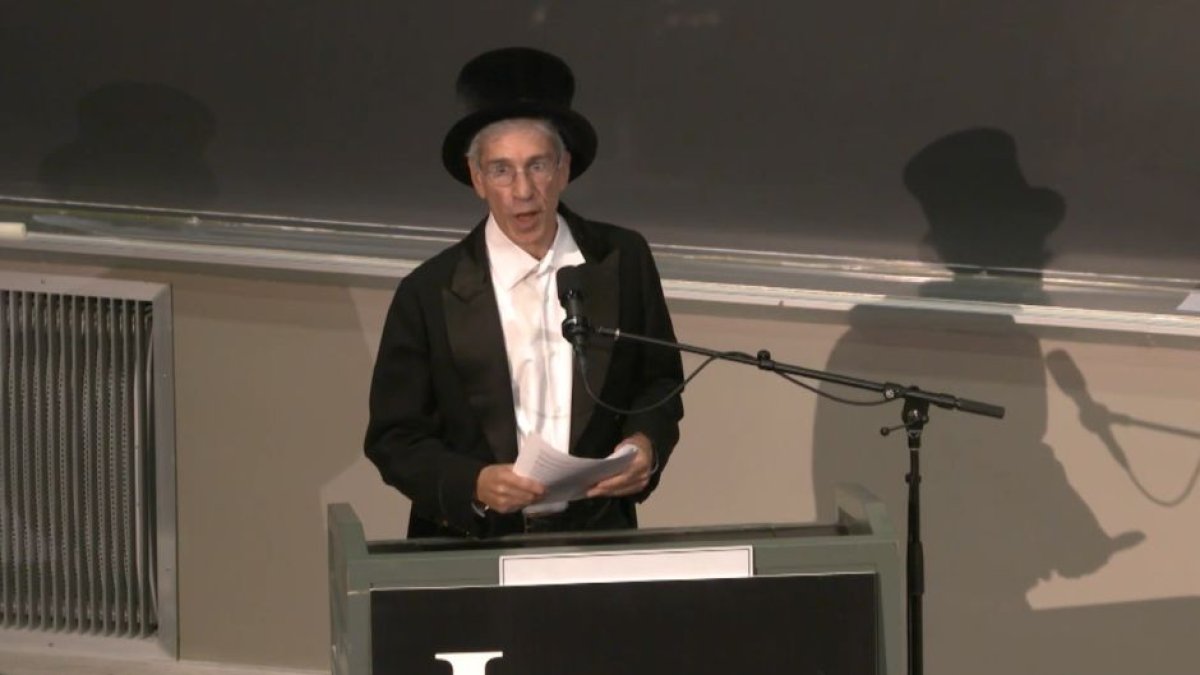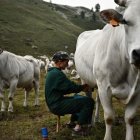Anus-breathing mammals and drunken worms, the stars of the 2024 Ig Nobel Prizes
The Ig Nobel Prizes, created in 1991, emerged to honor the imaginative and unusual in science. This year, the Massachusetts Institute of Technology (MIT) hosted the 34th edition of the humor-filled ceremony held to honor unusual scientific discoveries.

34th First Annual Ig Nobel Ceremony
An event rife with humor and science, the Massachusetts Institute of Technology (MIT) hosted the 34th annual Ig Nobel Prize ceremony, which celebrates unusual scientific discoveries. This year, one of the most talked-about awards went to a team of Japanese scientists who revealed that some mammals, such as rats and pigs, can breathe through the anus. This surprising finding, based on studies with these animals, has prompted clinical trials to explore their potential in the treatment of human respiratory failures.
The Ig Nobel Prizes were founded by the science humor magazine "Annals of Improbable Research" in 1991 to honor the imaginative and unusual in science. Marc Abrahams, master of ceremonies and editor of the journal described these awards with a humorous quip: "If you didn't won an Ig Nobel Prize tonight, and especially if you did, better luck next year."
Among the winners was the work of the late US psychologist and Harvard professor BF Skinner, who in 1960, proposed using live pigeons to help guide air-to-surface missiles, at a time when there were no missile guidance systems. The plan was to place pigeons inside a missile called "Peli-can," which would be trained to track land and sea targets.

World
Denmark announces world's first tax on flatulence from cows, sheep and pigs
Rosana Rábago Sainz
One of the most striking research was by Tokyo Medical and Dental University, which discovered that pigs and rodents have the ability to breathe through their anuses. The scientific team was inspired by the adaptations of catfish, sea cucumbers and orb-weaving spiders, which can receive oxygen through their buttocks to survive in situations where not much is available. Oxygen is distributed through the intestinal wall, compensating for the lack of oxygen in the body. The researchers rubbed the lining of the rectum to cause inflammation and increase blood flow, improving the efficiency of oxygen delivery.
The researchers hope to one day be able to use a similar test in humans. "The rectum has a mesh of fine blood vessels just below the surface of its lining, which means that drugs administered through the anus are readily absorbed into the bloodstream," explained author Ryo Okabe in a statement. "This made us wonder whether oxygen could also be delivered into the bloodstream in the same way. We used experimental models of respiratory failure in mice, pigs and rats to test two methods: delivering oxygen into the rectum in gas form, and infusing an oxygen-rich liquid via the same route."
More amazing research came from the University of Amsterdam in 2022, in which researchers wanted to discover how particles, known as "active matter," could move on their own. To do this, they used Tubifex worms, which they made drunk with ethanol to represent this type of particle. The researchers were able to classify the worms according to their level of activity in a maze-like structure and, for the first time, classify active matter.
Another unusual investigation arose from the question, "Can a dead trout swim?" That's what Harvard's Dr. James Liao asked himself. To do so, he used a dead rainbow trout, inserted wire electrodes into its muscles and built computer models of the movements. He found that fish in choppy water let themselves go with the current rather than swim. "It makes a lot of sense," Liao told Harvard Magazine. "If you're in the middle of a windstorm and you're behind a tree, you don't feel the wind as much."
























